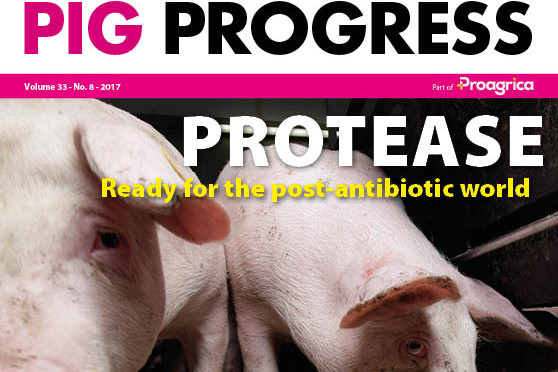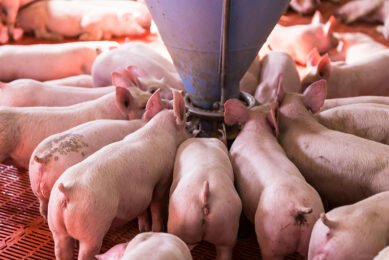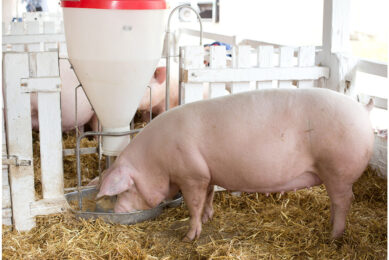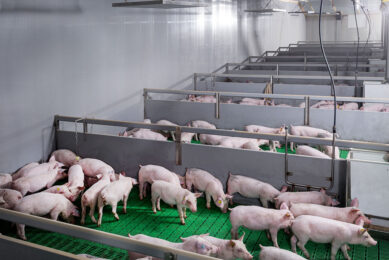Pig Progress 8 zooms in on alternatives to antibiotics

In the search for alternatives to antibiotics, the 8th issue of Pig Progress in 2017 contains series of interesting background articles. How about an approach using proteases or vaccination through liquid feeding?
Protease is an enzyme capable of breaking down proteins. As contributor Dr Howard Simmins of InSci Associates writes in his opening lines of the article on pages 24-25, it is a very modern feed additive that supports better nutrition, health and environmental conditions in pig production.
This can all help to fill the gap that is being created by reduced use of antibiotics in pig feed, he says. In an extensive contribution on pages 24-27, he explains how protease works and what opportunities it offers.
Reducing antibiotics in North America
Pig Progress editor Vincent ter Beek interviewed Dr Al Thomas, who was recently moved forward to lead the North American sales lead for Danisco, the animal nutrition division of DuPont’s Industrial Biosciences unit. Interestingly, North America has a long way to go in order to reduce its antibiotics footprint, so here is a clear challenge for Dr Thomas and his team.
Tail necrosis
There is a lot of research going on with regard to tail biting and tail docking. A group of German researchers from the University of Giessen recently followed the path of the idea that tail biting might be related to the occurrence necrosis.
In case, due to incorrect feeding, tails (or other parts of the body) may be developing some kind of necrosis, it might feel itchy and pigs might actually experience nibbling on it as a relief. Correspondent Norman Dunn reports. Pages 6-7.
Ileitis vaccination in liquid feed
Vaccination is often mentioned as an alternative to antibiotics – and there are more reasons than just applying that strategy subcutaneously. In the European Union it is even possible to supply vaccination through liquid feed.
Dr Petra Maass of Boehringer Ingelheim explains how that works with the company’s strategy against for ileitis. Page 12-13

Romania – another sleeping giant
In our series ‘Country Focus’, we take a look this month in Romania, which has the potential to become a strong pig country, yet for now hasn’t lived up to that promise for the last 2 decades or so. What is going on there? Pages 10-11
Visit to Eastern France
When thinking of pigs and France, one ends up pretty quickly in Brittany, in western France. Now there are pigs in other parts of the country. Correspondent Philippe Caldier took a look at the pig industry of eastern France and learnt the differences. Pages 20-22
Functional fibres in pre-weaning nutrition
One can’t start early enough in supplying the right feed to newborn piglets, as what producers give them at the very early stages, can have large effects later in life. Hubèrt van Hees and István Bessenyei discuss the effects of functional fibres in pre-weaning nutrition, pages 29-31.

Columns: Winds of change and condensation
Monthly columnist John Gadd dives once more into the topic of condensation – and explains all about the Coandǎ effect and how this can help understand the dynamics of airflow better in a pig house. Page 8
Meanwhile, columnist Dr Casey Bradley reflects on her recent move to Purina Animal Nutrition and identifies challenges in her new job. Page 34
To read all the articles in this issue, go to the magazine overview page and sign up with your current website login.
 Beheer
Beheer








 WP Admin
WP Admin  Bewerk bericht
Bewerk bericht